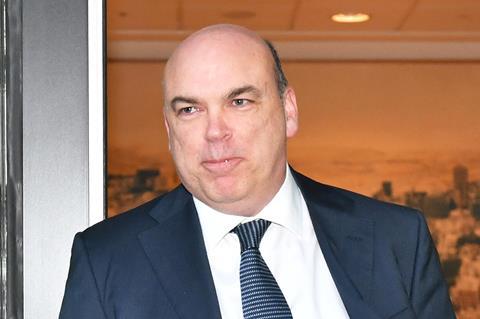Software entrepreneur Dr Mike Lynch has failed in his appeal to stop his extradition to the US to face alleged fraud charges. Lord Justice Lewis and Mr Justice Julian Knowles dismissed the appeal in an ‘unusually long’ 51-page permission decision in Michael Lynch v Government of the United States of America.
According to the judgment, Lynch, accused of ‘one of the largest frauds ever prosecuted by the United States Department of Justice’, made a ‘root and branch attack on all of the district judge’s reasons’.
The case centres on the $11.7 billion acquisition of Lynch’s company Autonomy by Hewlett Packard in 2011. Lynch, 57, is accused of engaging in a conspiracy to provide dishonest information about Autonomy’s performance during the buying negotiations. He is accused of dishonestly maintaining or inflating the company’s share price and the price HP paid for the company.

He is also accused of attempting to obstruct justice in relation to the investigation into the alleged fraud, and of money laundering in relation to the money he personally received following the acquisition. Lynch was indicted together with Autonomy’s former vice president of finance, who returned voluntarily to the US and was released on bail.
Lynch, who denies all the allegations against him, owned a ‘substantial number’ of Autonomy shares. The ‘alleged fraud benefitted him personally’ as he received some $800 million from the sale.
The High Court judgment said: ‘In very simple terms, therefore, [Alex] Bailin’s argument [for Lynch] was that the correct legal analysis was that: the entire loss was the overpayment (in England); most of the harm was misleading the market (in England); and therefore the district judge was wrong in his assessment of s 83A(3)(a) [of the EA 2003] to the extent that he found to the contrary and that most of the loss or harm from the fraud conspiracy had occurred in the US.’
It added: ‘HP, through its ownership and control of Bidco, acquired an asset for which it paid $11.7 billion but the value of the asset had been vastly overstated and it was worth billions less than the purchase price paid by HP. As such, the loss was mainly suffered in the US.’
The judgment said the harm caused from the ‘cover-up conspiracy took place in, and was felt entirely or nearly almost entirely in, the US… where justice was said to have been obstructed in relation to Counts 1-16 [of the US indictment] through secreting proceeds, lying to investigators, destroying evidence, and paying off witnesses’.
‘Once the proper scope of the victims involved in this case is appreciated, and that the greater loss and harm happened in the US where those victims were located, then it is obvious, as the district judge rightly concluded, that this factor strongly favours a trial in the US.’
Refusing permission to appeal on the ground of forum, Lewis and Knowles said: ‘We have found no flaw in the district judge’s approach to any of the statutory factors in s 83A(3). It follows there is no basis for us to reach the conclusion he was arguably wrong in his overall evaluative assessment of the interests of justice because of an error in relation to any of the statutory factors.’
A spokesperson for Lynch said the businessman would continue to ‘explore his options to appeal’.
He added: ‘Dr Lynch is very disappointed, but is reviewing the judgment and will continue to explore his options to appeal, including to the European Court of Human Rights. The United States’ legal overreach into the UK is a threat to the rights of all British citizens and the sovereignty of the UK.’
Alex Bailin KC, Aaron Watkins and Jessica Jones, instructed by Clifford Chance LLP, appeared for Lynch; Mark Summers KC and Rachel Barnes KC, instructed by CPS, for the Government of the United States of America.
This article is now closed for comment.



























3 Readers' comments